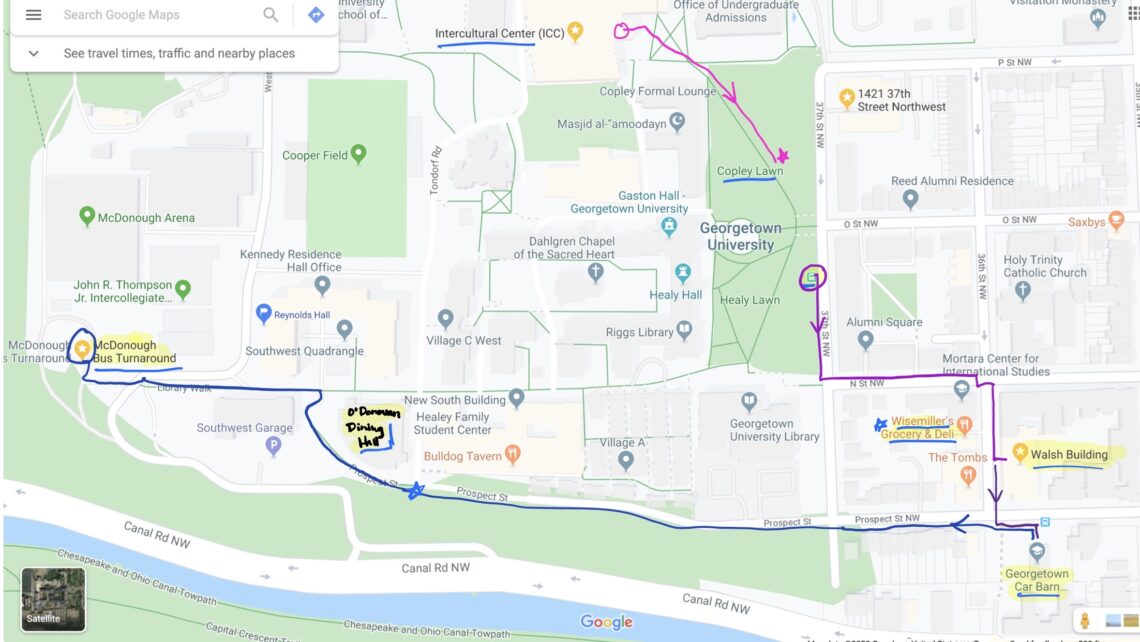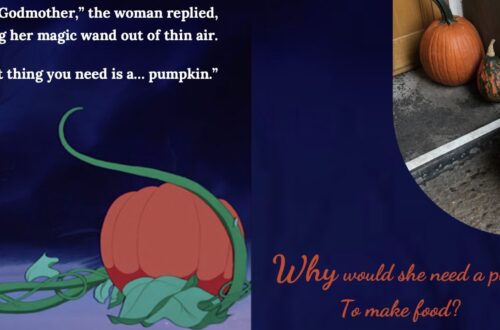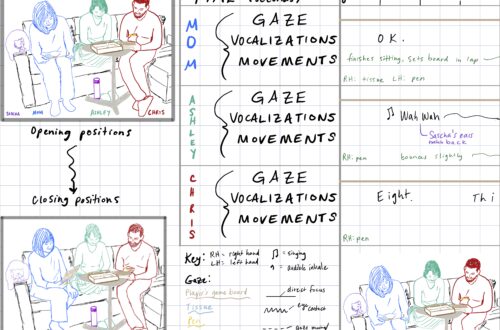
Sensory Experience: Olfaction
Georgetown University, 2020. Linguistics: Multimodal Interaction Analysis.
[Assignment prompt: for a day on campus, keep track of your reactions to ambient smells, in differing spaces outside and inside campus buildings. Draw a map that identifies especially pleasant/satisfying smells and especially unpleasant/disturbing smells. Discuss the sites of these olfactory experiences and your reactions.]
Monday morning, January 13, 2020:
I disembark the Metrobus on the street level below the main lawns of Georgetown’s campus and begin slowly walking downhill toward the Walsh Building. The streets are nearly empty of pedestrians and automobiles in operation. I detect mild scents of earth and dirt, but mostly notice that the air feels thick in my nostrils. It surprises me that I don’t observe more smells and note that this experience would have been much more pungent had I attempted it less than a month ago on my daily commute in New York City! I consider that the throat lozenge in my mouth may be impairing or distracting my sense of smell. I have a slight cold and all of my senses feel more dull than usual.
A car goes by, sending me faint exhaust fumes. I notice other mild smells carried by a light breeze but can’t identify them. As I reach the corner of N St. and 36th, I can now strongly detect food – it smells like diner food: maybe fried onions, grilled cheese – and pickles? I can’t tell whether I actually smell pickles or have created the smell in my mind from past association of pickles and diners. This must be from Wisemiller’s Deli across the street; it smells good, and I enjoy it for a moment, especially because it reminds me of a diner I have many positive associations attached to, in Julian, CA. I’m getting married across the street from that diner this summer. Then, a man walks by and contaminates my enjoyment of the food smells with his cigarette. Fortunately, this is brief and doesn’t linger in the air.
While typing scent-notes on my phone standing outside of Walsh before class, a friend arrives. We hug and I notice how refreshing her perfume smells – light and citrusy; a different genre of scent from the others so far – manmade, intentionally added – and closer-feeling than others because of its proximity to my nose: the smell of the food had been very prominent, but it was more diffuse, being farther away and less concentrated.
As we enter the moderately-populated building, I begin to notice many intertwined smells – mostly from products like perfume or deodorant. This continues after taking the stairs to the third-floor hallway, though smells become more separated, as there are fewer people; still grooming products. I use the women’s restroom, which I am pleased to notice smells rather neutral, though with a slight, underlying odor of old water. It smells neither like human waste nor cleaning supplies.
The classroom smells warm – like forced-air heat. Several other female students have already arrived, and the grooming products present in this room make a positive impression. Underneath the added fragrances, I notice the smell of carpet; perhaps the inherent smell of this room is carpet and heat with various, mainly fruity, grooming products that come and go with the students.
During class and also when walking and talking with my friend, it becomes hard to think about smell; I don’t notice it unless specifically focusing on it or when something is particularly strong – mainly food and perfume.
After class, my friend and I proceed to the busier Car Barn building; it feels impossible to pay attention to smell and also talk, walk down stairs, and avoid crowds. I consider this from the perspective of selective sensory processing (context: Hall’s The Hidden Dimension) and wonder how often I block out mild scents to avoid input overload. The only smell I notice in that building is slightly burnt toast, most likely from the bagel shop.
Still with my friend, we prepare to leave campus via the GU shuttle bus in the early afternoon. We pass behind the library, above the water and main driving road (Canal Rd.), where the sounds of cars are much more noticeable than scents. This lack of noticing is delightfully disrupted by smells of baking bread wafting upwind from O’Donovan Hall. I am hungry. While waiting at the neutral-smelling bus stop, I spray some of my hand sanitizer – made with very fragrant essential oils of cinnamon, clove, and orange – like a fall or winter holiday – which my friend comments on, briefly becoming our topic of conversation.
My favorite experience of smell on campus came from a different day – last Friday, when my sense of smell was not obstructed and the air was clear and light (rather than damp and heavy, like it was for much of this week, which I feel diminished the intensity and duration of odors). Walking on the path from the ICC toward the front gates, I crossed Copley Lawn and was taken aback by the fresh, clean, most-welcome scents of nature. Enabled by mild temperatures, the moist ground emitted smells that follow a spring rain! Wholesome smells of dirt and plant matter. In that moment, I just remember feeling happy and surprised; grateful and reassured to have had a positive first few days at Georgetown. In reflection, I imagine this sense of comfort and security was enhanced by my fondness of the smell of freshly-turned soil – stemming from my childhood on acreage in Ohio; from an early experience reminiscent of that in The Secret Garden (which remains one of my favorite novels); and as an adult, from conversations with my dad (a rarity, as he generally doesn’t talk much) that have arisen while helping him in the garden.





One Comment
Anais
This sounds like an interesting exercise! Really enjoyed your about your experience with it.